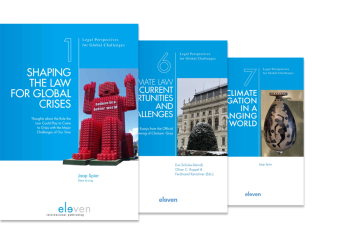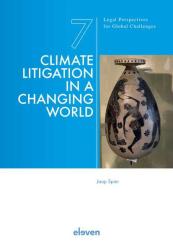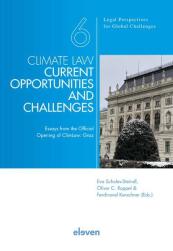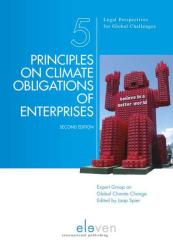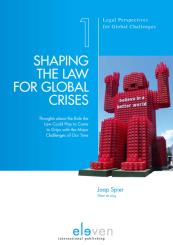Aim of the series
The series Legal Perspectives on Global Challenges focuses on the way the law can meaningfully contribute to the debate about the global challenges, primarily sustainable development, climate change, degradation of the environment and the eradication of poverty. The complexity of the issues mentioned above involves a new way of thinking so that law makers, states, enterprises, society at large – and law – will manage to adapt to major shifts in due time. So far, the law arguably already provides a sufficiently sound basis for more global stability in many areas, but suffice it to say is that the boundaries of the protection of the law and the rules of conduct are rather unsettled. It would be in the best interest of all stakeholders to map the law as it stands. Gaps must be filled to cope with the challenges of our time. The law has to be interpreted in such a way that it can cope with serious threats to mankind. Thus, the law would respond in a responsible and predictable way to these global challenges.
The debate, so far, is primarily about fundamental questions. It is the editors’ impression that the greater part of existing publications is still quite abstract. Legal Perspectives on Global Challenges intends to shed light on a number of important topics, aiming to determine the rights and obligations of the respective ‘parties’ affected as concretely as possible. As long as those rights and obligations remain largely in the clouds, the law is deemed to fall short in overcoming deadlocked positions – especially, but by no means confined to, the debate between the global North and South. After all, not only states and enterprises, but also judges, attorneys, other jurists – and civil society – do not know exactly what they need to do, let alone why.
Many lawyers and eminent experts almost inevitably focus on parts of the law belonging to their fields of expertise. This is understandable, but the challenges ahead of us require that we borrow from legal concepts and other disciplines in as many parts of the law (and ‘legal families’) as possible. Such an approach will add something to what is already available. At the same time such an undertaking will challenge traditional ways of legal thinking. Shaping the law of the future will require solutions for sustainable development, the eradication of poverty and climate change, which will require the legislator and the judiciary to get acquainted with the legal and other demands of the 21st century. This requires clear, balanced and convincing legal ‘blueprints’, based on solid legal concepts.

